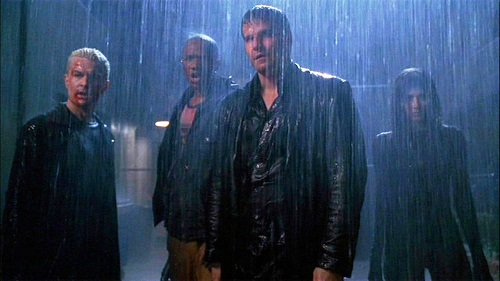Aaronology
Member
I like this take on the Continental/Underground coin system.I think because he is in charge of everything in the world, he was putting new coins into circulation
The bigger question is why 1 coin gets you two drinks, but 3 coins gets you all the intel you need to kill a person and 4 coins gets you a couple hundred grand worth of illegal weaponry. That drink be pricey.
Gold coins, million-dollar contracts and the John Wick economy
https://www.washingtonpost.com/news/act-four/wp/2017/02/15/gold-coins-million-dollar-contracts-and-the-john-wick-economy/?utm_term=.0d243f648ee7
At the center of this universe is The Continental, a sort of hit-man hotel run by Winston (Ian McShane), one of the few people who can get away with referring to John Wick (Keanu Reeves) as Jonathan. The Continental is a fascinating place: Like holy ground in Highlander, all assassins are welcome yet all are prohibited from doing harm to anyone, lest they risk incurring the (deadly) wrath of Winston. The economy of The Continental indeed, the economy of John Wicks life, generally revolved around the exchange of vintage-looking gold coins for goods and services.
In the sequel,we get another glimpse into how this means of exchange works. Early on, as Wick is seeking out Winstons advice on how to handle the would-be head of the Camorra, we see the hotelier signing off on a new batch of gold coins. Here is another clue as to how the Wickonomy operates: These are not ancient doubloons, as one might have thought, but newly minted and injected into The Continentals monetary flow for, one would presume, distribution to the brotherhood of assassins who wander its halls.
How these gold coins actually get into the hands of the assassins is still a bit of a mystery, given that the contracts we hear of are priced out in dollars. One wonders what the dollar-to-gold-coin conversion rate is, exactly, especially since the price-per-item for goods and services in The Continental seems relatively uniform: a coin for a drink, a coin for a gun, a coin for a favor, etc.
Outside of the hotel, things appear a bit more varied: Wick pays a corpse-removal service one coin per body in the first film, for instance, while doling out several coins at once for information on infiltrating the Roman catacombs in the sequel. What are we to make of all this? Well, as Marginal Revolution blogger and George Mason University economics professor Alex Tabarrok might say, a price is a signal wrapped up in an incentive.
So what are the signals and incentives in the gold coin system? It seems clear that Winston has used his prices to incentivize hit men into using The Continental as little more than a way station. By pricing a cocktail and carbine at similar levels, Winston is making it far too expensive for the average assassin to use The Continental with its rules against murder and such as a permanent safe house. The relative cheapness of guns combined with their impotence onsite means that murderers are incentivized to go elsewhere, to pick up contracts and be on their way. In other words, the economic system serves to keep the motor of the movie turning as much as anything else.

